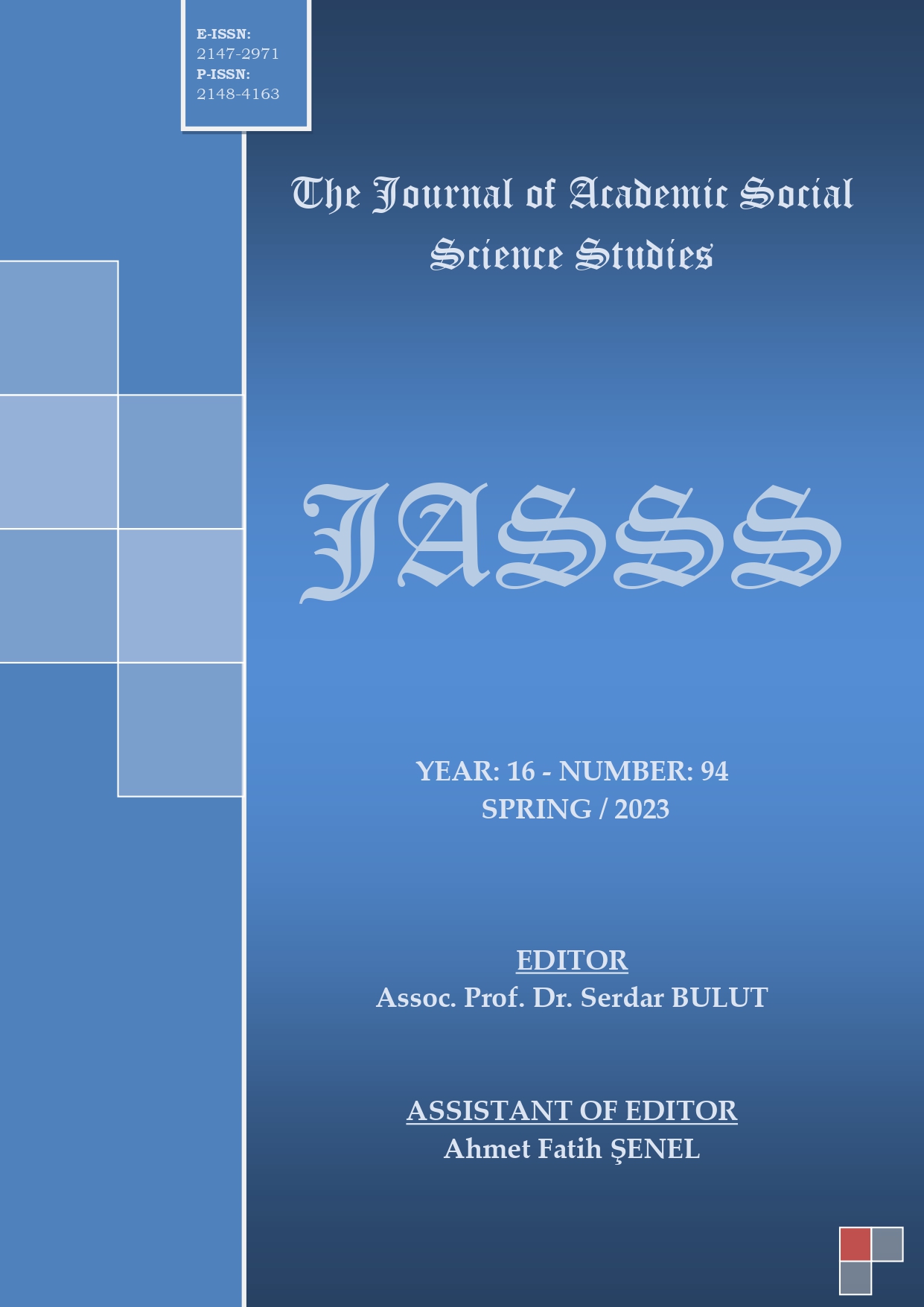Author :
Abstract
Davranışçı kuramların karmaşık insan davranışlarını açıklamada yetersiz kaldığından “Sosyal Öğrenme Kuramına bağlı model alma yöntemiyle öğrenme” özellikle günümüz şartlarında kabul gören bir yaklaşım olmuştur. Sosyal öğrenme kuramına “Sosyal Bilişsel Kuram” da denir. Sosyal öğrenme kuramıyla öğrenmeyi bireysel, davranışsal ve çevresel faktörlerin harmanlanması olarak görmek gerekir. Sosyal öğrenme kuramı, çok küçük yaşlarda başlayan diğer adı gözlem yoluyla öğrenme olan bireylerin en etkin öğrenme biçimidir. Çocuklar kendilerini geliştirirken, hep bir öğrenme süreci içindedirler. Kişiler diğer kişilerin hareketlerini taklit yoluyla ya da bilişsel olarak işlemeyle (akıl ve yordama süreçleri) ile öğrenebilirler. Buna model alma denir. İnsanlar diğer insanlarla sürekli etkileşim halindedir. Bu da insanları sosyal yönünün gelişmesini ve yöntemin insanlar üzerindeki etkisini de doğal olarak arttırmaktadır. Birey çevresindeki olayları gözlemler, beğendiği ve diğer insanlar tarafından takdir edilen davranışları belleğine kaydeder, gerektiğinde kullanır. Sosyal öğrenme yoluyla öğrenme yaşamsal ve deneyimsel bir yöntemdir. Geçmişte edinilen gözlem ve tecrübeler insanların davranışlarına şekil verir. Bireyler sosyal öğrenme yoluyla çevrelerindeki davranışların modelini inceler ve beğenip isterse gerektiği zaman aynı model davranışı sergiler. Araştırmada sosyal öğrenme kuramının tarihsel gelişimi, model alma yönteminin dayandığı ilkeler ve kavramlar gerekli literatür taramasıyla açıklanmaya çalışılmıştır. İlkokulda Türkçe, matematik, din kültürü, okuma yazma, okuma alışkanlığı kazanma, müzik, hayat bilgisi, sosyal bilgiler, trafik, fen bilimleri ve insan hakları ve yurttaşlık gibi dersler vardır. Bu derslerin hepsinde ilkokul yaş grubu öğrencileri için sosyal öğrenme kuramı uygulanabilir. Örneğin; müzik dersinde herhangi bir enstrüman çalmayı öğretirken öğretmen öğrencilere rol model olabilir ya da insan hakları dersinde öğrencilere adalet ve eşitlik kavramlarını anlamaları için drama yaptırılabilir. Matematik derslerinde sıkça işlem ve problem çözdürülerek bu çözümlerin sonucunda çözebilen öğrencilere ödüller verilerek diğer öğrencilere dolaylı pekiştireçler sunulabilir. Bu sayede matematik dersinde başarılı olan öğrencilerin davranışlarını gözlemleyen diğer öğrenciler de model aldıkları ve güdülendikleri arkadaşlarının davranışlarının aynısını sergileyebilir ve matematik dersinde başarılı olabilirler.
Keywords
Abstract
Since behavioral theories are insufficient to explain complex human behaviors, "learning by modeling method based on Social Learning Theory" has become an accepted approach especially in today's conditions.Social learning theory is also called “Social Cognitive Theory”.With social learning theory, it is necessary to see learning as a blending of individual, behavioral and environmental factors.Social learning theory is the most effective form of learning for living things, which starts at a very young age and is also known as learning by observation.As children develop themselves, they are always in a learning process.People can learn by imitating other people's actions or by cognitive processing (mind and predictive processes).This is called modeling.People are in constant interaction with other people.This naturally increases the development of the social aspect of people and the effect of the method on people.The individual observes the events around him, records the behaviors that he likes and appreciated by other people in his memory, and uses them when necessary.Learning through social learning is a vital and experiential method.Observations and experiences gained in the past shape people's behavior.Individuals examine the model of behavior around them through social learning, and if they like it, they exhibit the same model behavior when necessary.The historical development of social learning theory, the principles and concepts on which the modeling method is based are tried to be explained with the necessary literature review, and the effects of the social learning method in primary school education are explained. In primary school, there are courses such as Turkish, mathematics, religious culture, literacy, reading habits, music, life studies, social studies, traffic, science and human rights and citizenship. Social learning theory can be applied for primary school age group students in all of these courses. For example; The teacher can be a role model for the students while teaching how to play any instrument in the music lesson, or the students can be made to have drama in the human rights lesson to help them understand the concepts of justice and equality. In mathematics lessons, students who can solve operations and problems frequently, and students who can solve them as a result of these solutions are given awards and indirect reinforcements can be offered to other students. In this way, other students who observe the behaviors of students who are successful in the mathematics lesson can also exhibit the same behaviors of their friends whom they model and are motivated by and be successful in the mathematics lesson.
